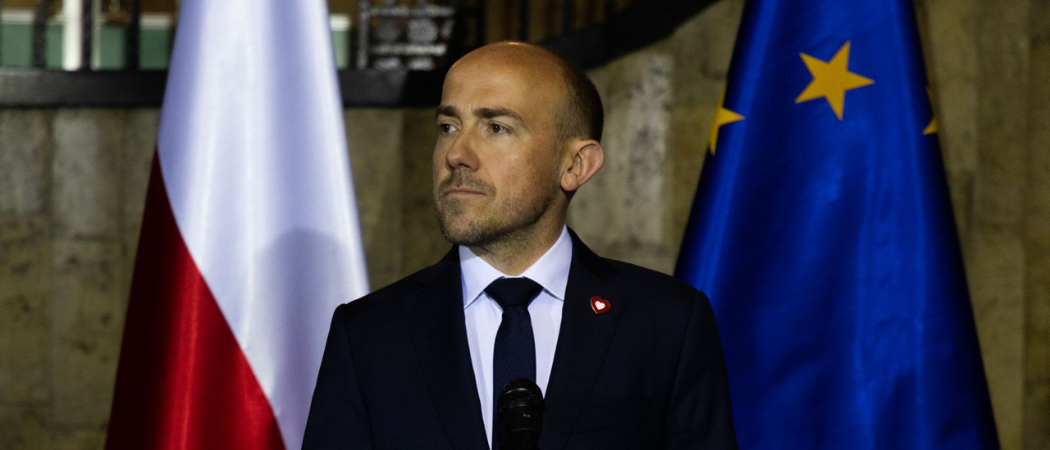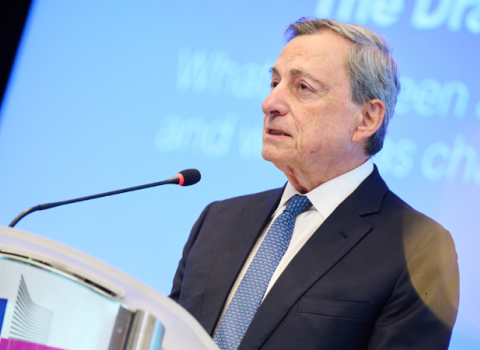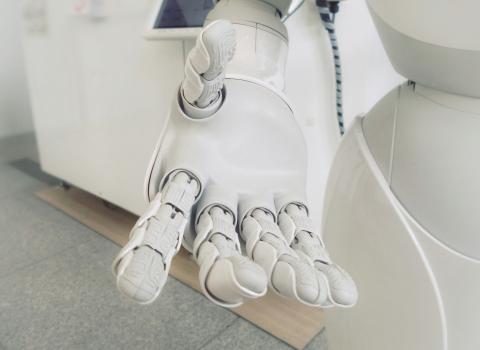The Polish MEP is expected to be confirmed as the next chair of the ITRE committee, which will draft the Parliament’s position on FP10

MEP Borys Budka. Photo credits: Republic of Poland
Polish MEP Borys Budka is to be nominated next chair of the European Parliament’s Industry, Research and Energy (ITRE) committee, taking over the reins from Romanian MEP Cristian Bușoi, as negotiations on the shape of FP10 get underway.
The news on Budka’s nomination came last week from a Polish radio station reporting on possible nominations of Poles for positions in the European Parliament.
Earlier this week, Parliament sources confirmed for Science|Business that Budka’s role in ITRE has been agreed informally, while a formal vote in the committee is expected next week.
Politically active since the 1990s, Budka served as city councilor in Zabrze, Poland, between 2002 and 2011. In 2006 he joined the Civic Platform party, and in 2011 he was elected to the Sejm, the lower house of Poland’s bicameral parliament.
Budka’s political career includes a tenure as minister of justice in 2015 and minister of state assets from December 2023 to May 2024. He resigned to run for the European Parliament.
Currently an adjunct professor at the Department of Energy Transformation at the University of Economics in Katowice, Budka holds a master's degree in law and a PhD in economics.
Next steps
MEPs, who are in Strasbourg this week for the first plenary of the new mandate, will vote on the numerical composition of the Parliament committees on Wednesday. Committee members will be nominated by political groups and announced on Friday, before the committees meet next week to officially elect their chairs and vice-chairs.
Including ITRE, 20 different committees are working on the Parliament’s positions on legislative proposals, which are then voted on by all MEPs. Committees can also organise hearings with experts and adopt own-initiative reports calling on the Commission to propose legislation on a given issue.
Committee chairs are elected for two and a half years and coordinate the work of the committees in the Conference of Committee Chairs.
Muriel Attané, secretary general of the European Association of Research and Technology Organisations (EARTO), said they are looking forward to working with the new ITRE committee members.
“We surely hope they will be committed to supporting us in making [FP10] a success and fighting on our side to ensure that future EU RD&I investments are up for the task to support EU competitiveness,” Attané told Science|Business.
FP10 negotiations
The ITRE committee is responsible for industrial policy, research and innovation, space, energy, and the application of new technologies. It’s set to play an important role over the next five years as the focus turns towards making Europe more competitive on the global stage while continuing to make progress towards reaching net-zero emissions by 2050.
ITRE members will also have an instrumental role in shaping the next framework programme for R&I. The European Commission is currently drafting its proposal for the programme that will replace Horizon Europe and run from 2028 to 2034, and once this is published next year, ITRE will begin deliberations. Once the committee has agreed upon a series of amendments, these will be subject to a vote in plenary ahead of negotiations with member states.
Both co-rapporteurs for Horizon Europe, Germany's Christian Ehler and Romania's Dan Nica, are returning to Parliament after winning re-election. Ehler told Science|Business ahead of June’s vote he planned to be involved in the legislative process for FP10, because it is “too important to be left to MEPs who only care about the programme when it draws media attention”.
But newly-elected MEPs with relevant backgrounds are also looking to get involved. One notable example is Eszter Lakos, a newly-elected MEP, who previously worked as a science and technology diplomat in Brussels and represented Hungary in the Council of the EU during negotiations for Horizon Europe.
“The likely focus of the committee will be to address the challenges of global climate change whilst remaining conscious of maintaining Europe’s global technological competitiveness,” said Lidia Borrell-Damián, secretary general of Science Europe, an association of research organisations.
MEPs voted on Thursday to re-elect Ursula von der Leyen for a second term as president of the European Commission on 18 July, after Maltese MEP Roberta Metsola was re-elected as Parliament president for another two and a half years.
Editor's note: This article was updated 18 July with the results of Ursula von der Leyen's bid to be re-elected for a second term at the helm of the Commission.





 A unique international forum for public research organisations and companies to connect their external engagement with strategic interests around their R&D system.
A unique international forum for public research organisations and companies to connect their external engagement with strategic interests around their R&D system.